Is it okay to be proud of one's culture?
It has become fashionable all over the world to scoff at being British.
Mention you’re proud of your British heritage, and watch the room shift uncomfortably. Say you admire the culture that gave us Shakespeare, the Magna Carta, and the Industrial Revolution, and someone will interject with “colonialism!” faster than you can say “tea and scones.” Even in Britain, of all places, the Union Jack is more likely to be associated with shame than with shared identity.
Well, I’m not ashamed.
I’m proud to be British and I’m not going to whisper it with an apologetic shrug. I’ll say it clearly and loudly for the people at the back. I was born in (what was once?) the greatest city on Earth: London, but having immigrated to New Zealand thanks to my Kiwi father aged four, I have lost my London accent and picked up the short front vowels of the land down down under. Nonetheless, I am proud of my heritage and my place of birth.
What is Britishness, anyway?
We are often told that to be British is to be somehow cultureless; to be as bland as our allegedly unseasoned food.
To call us “cultureless” is not only absurd, it’s an act of wilful denegration. In reality, the very act of dismissing our culture is rooted in the fact that it has been so influential that aspects of it have been absorbed, adopted, and (yes) imposed all over the world.
There is an iconic speech in an iconically British movie in which (iconic) British actor Hugh Grant plays the British Prime Minister and stands up to the bullying President of the United States.
What is Britishness, anyway?
We are often told that to be British is to be somehow cultureless; to be as bland as our allegedly unseasoned food.
To call us “cultureless” is not only absurd, it’s an act of wilful denegration. In reality, the very act of dismissing our culture is rooted in the fact that it has been so influential that aspects of it have been absorbed, adopted, and (yes) imposed all over the world.
There is an iconic speech in an iconically British movie in which (iconic) British actor Hugh Grant plays the British Prime Minister and stands up to the bullying President of the United States.
“We may be a small country, but we're a great one too. The country of Shakespeare, Churchill, the Beatles, Sean Connery, Harry Potter. David Beckham's right foot. David Beckham's left foot, come to that.,” says Hugh Grant’s character.
Love Actually, the movie that this quote is from, was released in 2003. Twenty-two years later, in 2025, I don’t know that the Prime Minister’s monologue would have been written. It would certainly have been more apologetic and included some serious caveats. But, the movie is correct. Britain is a great country and historically it was perhaps the greatest.
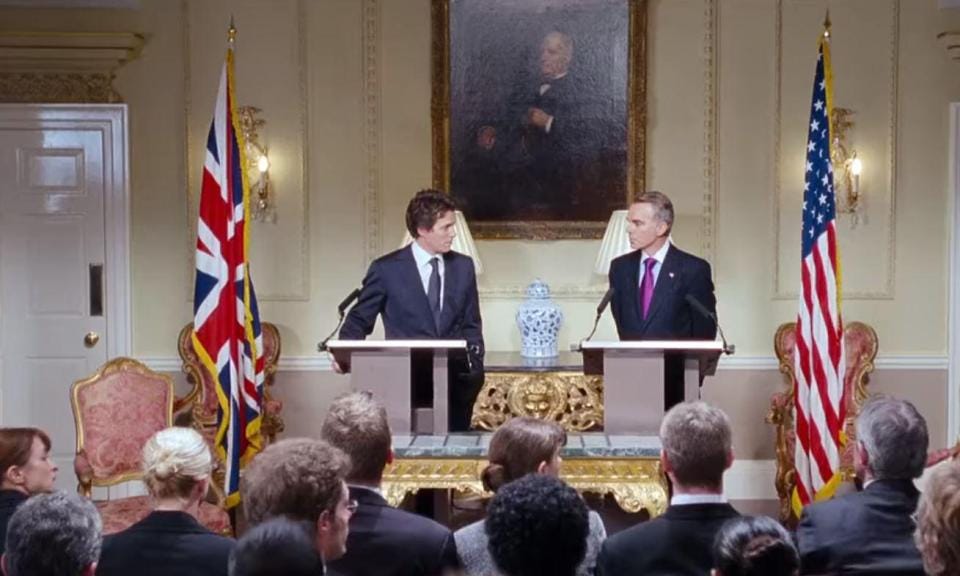
The English language is Britain’s greatest cultural export. A living, breathing legacy spoken by over 1.5 billion people worldwide. It is the global lingua franca, the dominant language of international business, aviation, diplomacy, science, and the internet. From corporate boardrooms in Singapore to tech startups in Berlin, English is the language of commerce and innovation. Universities around the world teach in English, global treaties are drafted in English, even pop culture, from music to movies, is overwhelmingly in English.
Our vocabulary has absorbed influences from across the globe while retaining its British roots. That a small island nation could produce a language so expansive, so influential, and so indispensable is a testament to the enduring cultural power of Britain. Wherever you go in the world, you’ll find English, sometimes as a legacy of colonialism, but often chosen because it works.
Most people do not even realise that the rule of law is a British cultural concept adopted by many, many nations. It is one of the most profound and far-reaching contributions to global civilisation. Rooted in documents like the Magna Carta (1215), which established that even the monarch was subject to the law, Britain pioneered the principle that power must be constrained by legal accountability. This idea evolved into the common law system based not just on statute, but on precedent and judicial independence which has been adopted or adapted in dozens of countries, from New Zealand and Australia to India, Canada, and the United States.

The British model helped embed fundamental concepts like due process, habeas corpus, and the presumption of innocence, cornerstones of any free and fair society. It enshrines the rights of individuals against arbitrary power and insists that no one, not even a prime minister or a king, is above the law. In a world where many nations still grapple with corruption and authoritarianism, the British invention of the rule of law stands as a towering cultural achievement; one that continues to protect liberty and justice for millions around the globe.
British culture is woven into the fabric of modern civilisation: parliamentary democracy, common law, afternoon tea, sarcastic wit, pub culture, punk music, and a national obsession with the weather. From the philosophical musings of Hobbes and Locke to the pop-culture dominance of Harry Potter and James Bond, Britain has shaped everything from governance to global entertainment. Even its restraint and stoicism (although inherited from earlier civilisations) form a distinct cultural identity built on dignity, understatement, and dry humour. Britain has culture in spades. The only people who deny it are those too blinkered by myopic ideology or too embarrassed by their own heritage to see it.
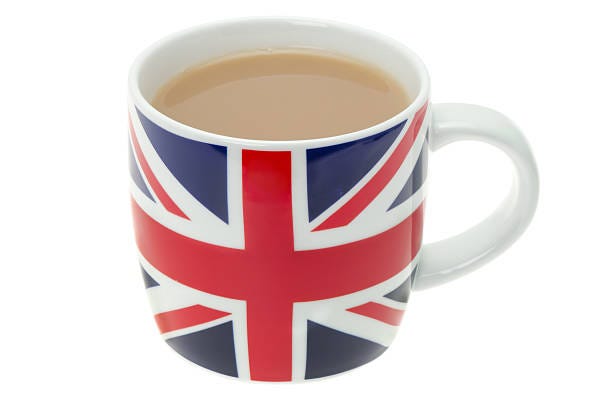
I better slide a caveat in here: I am not seeking to claim British moral perfection, nor pretending the British Empire was without stain. But British culture, true British culture, is a patchwork of resilience, wit, manners, industry, and quiet strength. It’s the stiff upper lip and the rebellious punk snarl. It’s queuing with patience, apologising when someone else bumps into you, and laughing at your own misfortune. It’s literature that shaped the world: Austen, Dickens, Orwell. It’s the Beatles and Bowie. It’s a Sunday roast and the staunch belief in the power of a cup of tea. It’s keeping calm and carrying on and minding the gap.
It’s also a legacy of ideas. These aren’t abstract either, they are the building blocks of freedom, and they didn’t sprout from nowhere. They are, undeniably, products of British civilisation.
Why are we supposed to be ashamed?
Somehow, celebrating British heritage has become taboo, even here in New Zealand, where our systems, language, institutions, and holidays are directly descended from the UK. Our legal system is British. Our Parliamentary system is British. Even our sense of humour is heavily influenced by the British.
Yet in schools, in media, and among the activist class, Britishness is increasingly framed as something to be ashamed of; an outdated colonial hangover that we should expunge from our national identity. There’s a peculiar push to pretend we were never part of the Empire, that our forebears never came from London, Glasgow, or Belfast with suitcases and dreams.
Why?
We don’t do this with other cultures. You can be proud of being Samoan, Indian, Chinese, or Māori, and rightly so. But if you dare to say “I’m proud to be British,” the suspicion is that you must secretly long for a top hat, a cane, and a return to Victorian imperialism. Or worse, that this is somehow an expression of white supremacy.
Pride in one’s heritage isn’t about superiority. It’s about connection. It’s about knowing where you come from and recognising what has shaped you. I can be proud of my British roots without diminishing anyone else’s. I can celebrate the good while acknowledging the bad. That’s called maturity. And it’s sorely lacking in many modern conversations about identity.
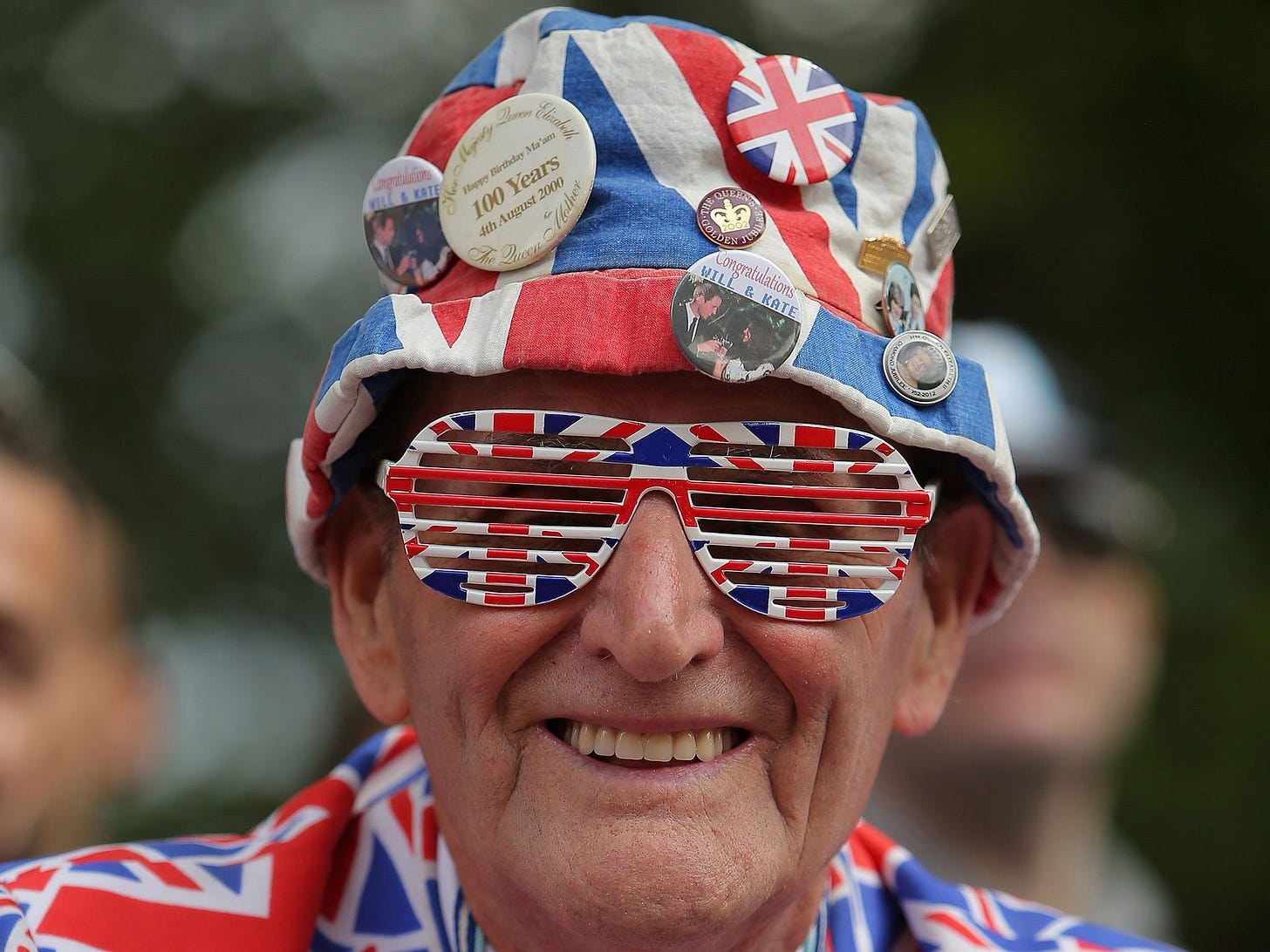
In Britain, the self-loathing runs deep
The irony is that this embarrassment isn’t limited to the far-flung corners of the former Empire. Britain itself is riddled with a strange cultural self-loathing. The people who once ruled a quarter of the globe now seem terrified of their own flag. National pride is dismissed as dangerous. Britishness is diluted, deconstructed, and denigrated.
Celebrating Britain has increasingly become a cultural liability rather than a point of unity. Often even cast as divisive. This demonisation is reinforced not just by social taboos but by government and institutional action. Case in point: just this week a 12-year-old girl in Rugby was barred from her school’s Culture Day simply for wearing a Union Jack dress and speaking proudly about tea, fish and chips, and fair play. Her school argued she “gets to celebrate being British every day.” I would strongly dispute that. Anyway, a day meant to celebrate diversity became a headline-grabbing scandal, which the Prime Minister has now commented on, all because this girl chose to celebrate Britain. Or rather because some adults didn’t want her to.

Meanwhile, the term “flag shagger” has entered public discourse as a pejorative, reflecting a broader disdain from elite institutions toward overt patriotism. The narrative being pushed is that only ‘gammon’ or hooligans wave the Union Jack. That to feel pride in the British flag is sinister and something that only totally uncouth, probably racist, bigots would do.
It is gobsmacking that there seems to be more elite acceptance of marches in which Palestinian flags are waved and pro-terrorist signs held up, than for anyone who might carry the Union Jack. When wearing one’s flag or voicing pride invites scorn or suspicion, the state isn’t just discouraging patriotism, it’s institutionalising a cultural cringe, making loyalty to country seem suspect rather than celebrated.
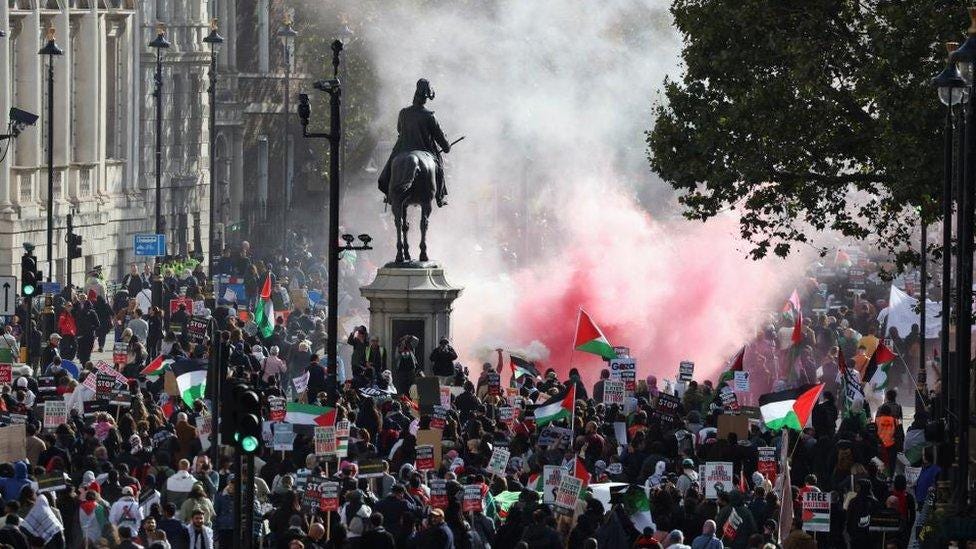
This is done in the name of some kind of desperate adherence to ‘inclusion’ doctrine and the increasingly flawed idea that “diversity is our strength”. Diversity can be wonderful when we share the very best parts of our cultures, but it is fraught with challenges that can be tricky to navigate. And when you erase the foundational culture, you don’t get unity. You get division.
What happens when British identity becomes a dirty word? You get young people in London who feel more allegiance to political causes they don’t fully understand like BLM or the recent pro-Hamas obsession. You get statues torn down, history rewritten, and a vacuum filled by extremism and identity politics. You get a generation that knows every American grievance but little about their own heritage.
I don’t want that for Britain. I don’t want that for New Zealand either.
Correcting misinformation: slavery
One of the things I most proud of as a British person is something that is terribly terribly misunderstood. That is Britain’s abolishment of slavery and its role in driving others to abolish it too.
The first falsehood that must be corrected is that ‘slavery is a uniquely Western sin’; it is not, it is a human one. It has existed in virtually every civilisation throughout history; Ancient Egypt, China, India, the Islamic caliphates, and African kingdoms all engaged in some form of it. Even today, modern forms of slavery such as forced labour, human trafficking, and debt bondage still plague the world, affecting millions. In particular, women and girls are disproportionately affected by the global sex trade.
According to the 2023 Global Slavery Index (by the Walk Free Foundation) the worst countries for still engaging in slavery today are: North Korea, Eritrea, Mauritania, Saudi Arabia, Turkey, Tajikistan, United Arab Emirates, Russia, Afghanistan, and Pakistan. The kind of slavery differs from place to place but includes state-imposed labour in prison camps, forced (and indefinite) military conscription, hereditary slavery, migrant exploitation, trafficking, Kafala, child labour, and bonded labour.
What makes Britain exceptional is not that it participated in the slave trade, but that it became the first major power to outlaw it and then spent the next century trying to eradicate it worldwide.
The Royal Navy’s West Africa Squadron was established to patrol the Atlantic and intercept slave ships. These men endured harsh conditions to rescue enslaved Africans and enforce the ban, often facing hostile nations and traders who had no intention of giving up their human cargo. Then, by the late 1800s, British diplomats were pressuring other nations to sign anti-slavery treaties. Let’s be clear here, no other empire in history deployed its military might, its diplomacy, and its moral authority on such a sustained and costly campaign to end slavery. It is a legacy of which every British citizen should be unapologetically proud because while virtually all cultures practised slavery, it was the British who helped end it.
British taxpayers footed the equivalent of billions of pounds today to compensate slave owners (controversial, yes, but illustrative of the scale of commitment), and the empire sacrificed huge economic interests to uphold the moral conviction. In fact, taxpayers were still paying the bill for abolishing slavery until 2015.
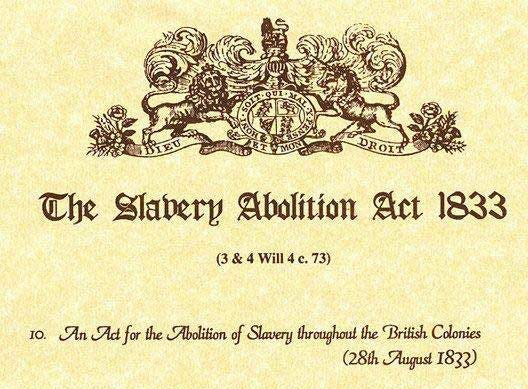
If you paid taxes in Britain any time prior to February 2015, you contributed to the end of slavery in the British Empire and beyond.
The abolition of slavery is something to be proud of and yet few Britons know about this aspect of our history. Maybe if we talked about it more openly and proudly this wouldn’t be the case.
My pride does not diminish yours
Being proud of your heritage doesn’t diminish the value of the heritage of others. I take no offence at the pride others take in their histories and cultures. We all have roots and should be free to attribute as much meaning to them as we wish.
British culture has given the world more than its fair share of greatness and we don’t have to be blind to its faults to see its value. So yes, I’m proud to be British. I’m proud of our history, our values, our literature, our humour, and even our weather-defying optimism. I encourage my fellow Brits to start saying it out loud.
Ani O'Brien comes from a digital marketing background, she has been heavily involved in women's rights advocacy and is a founding council member of the Free Speech Union. This article was originally published on Ani's Substack Site and is published here with kind permission.


No comments:
Post a Comment